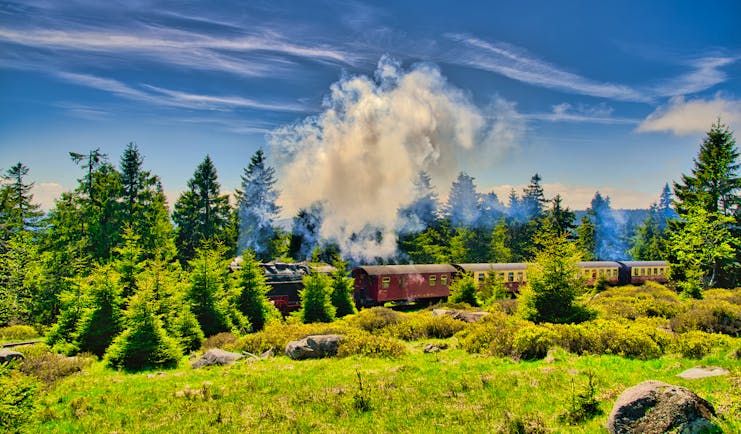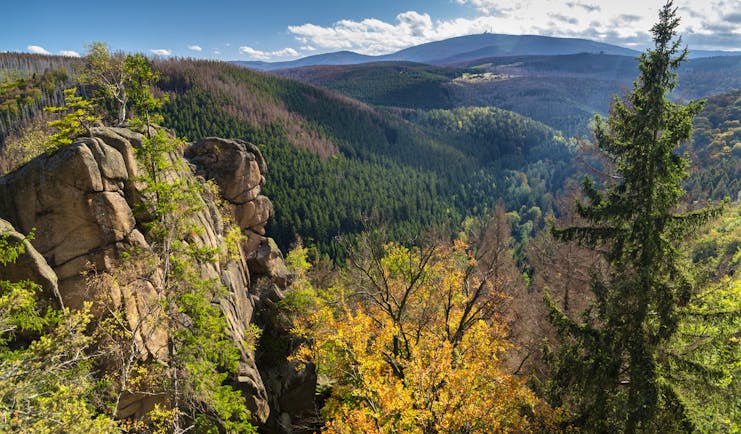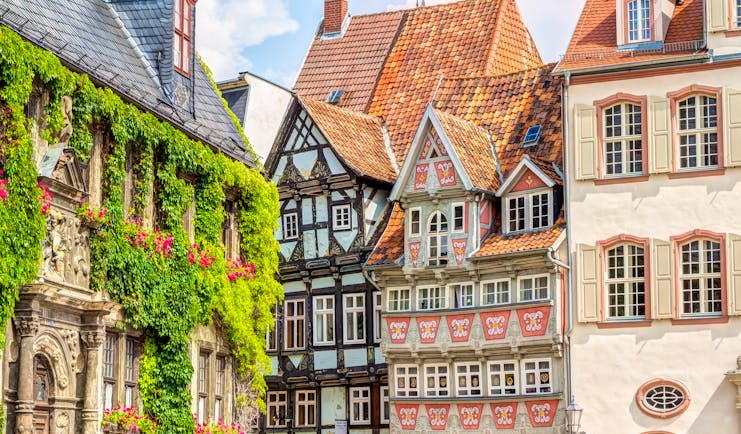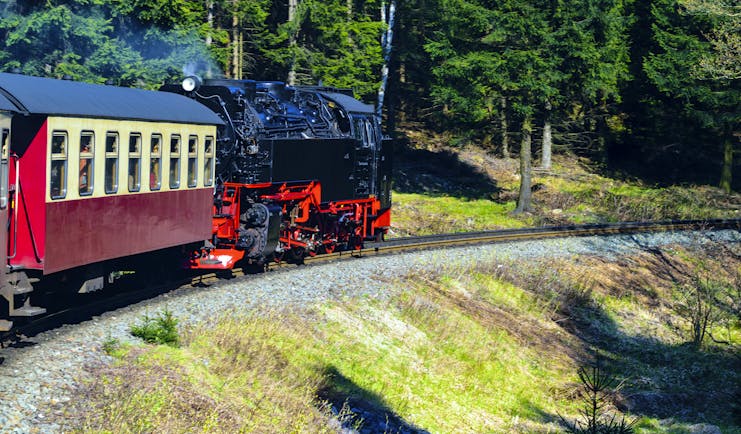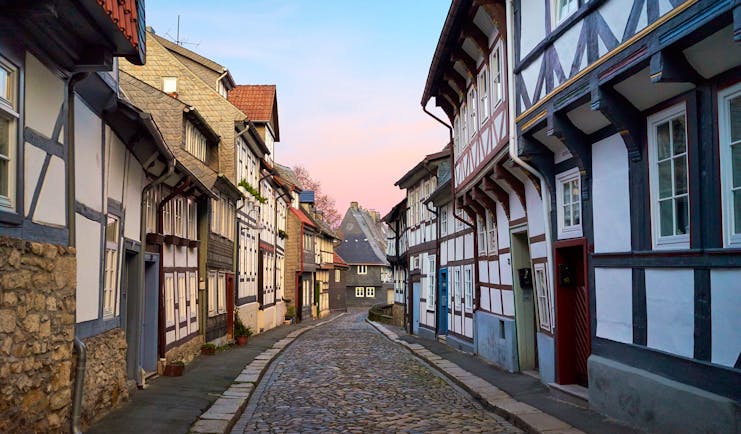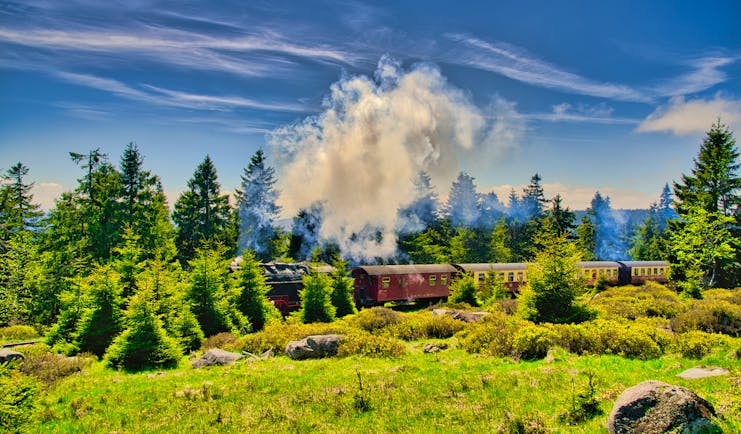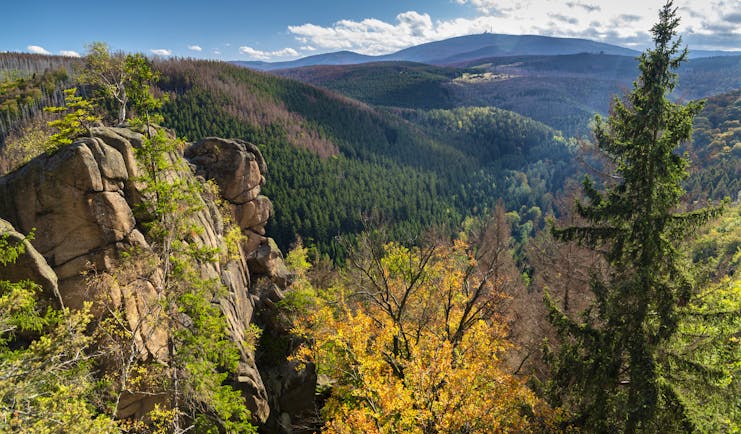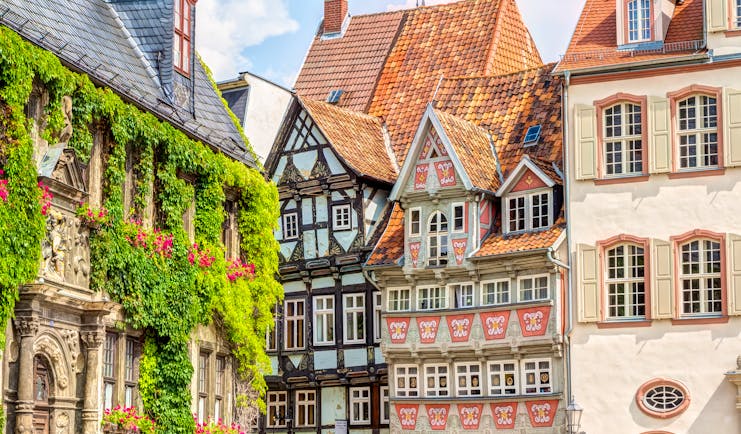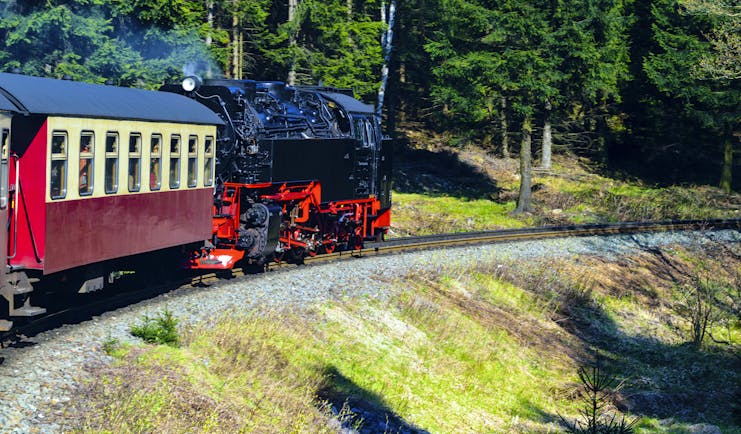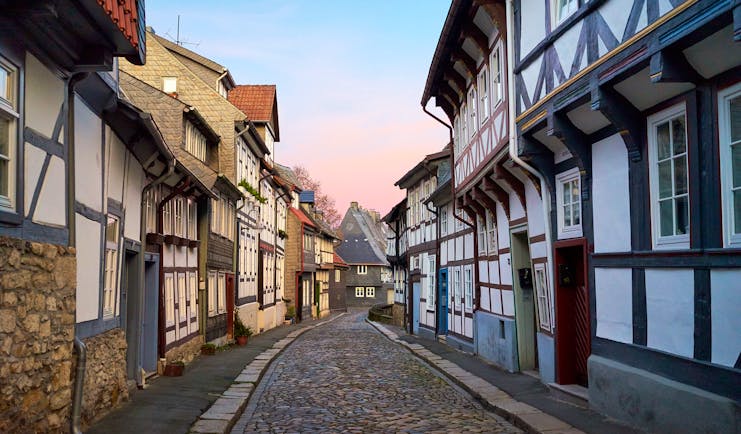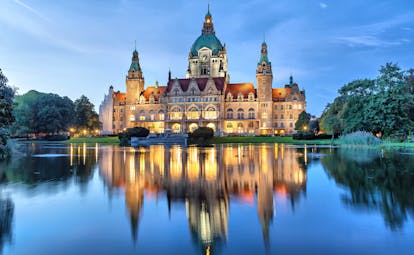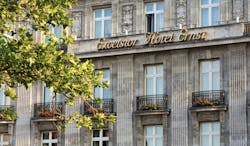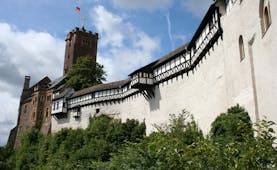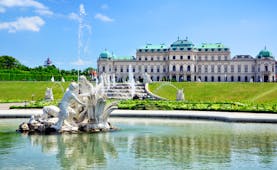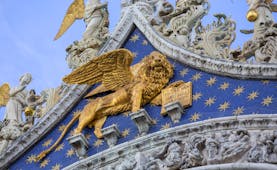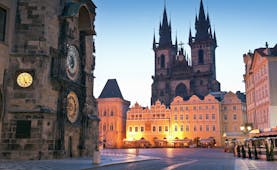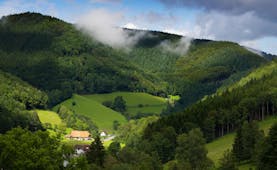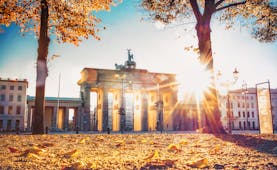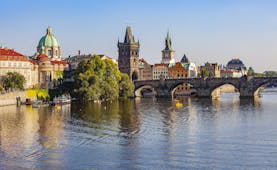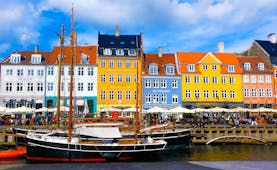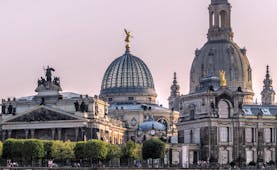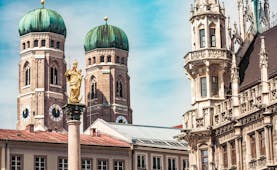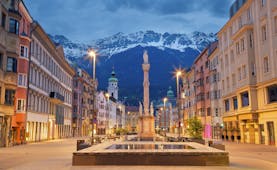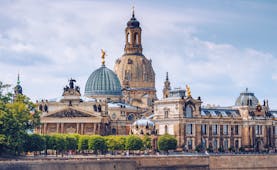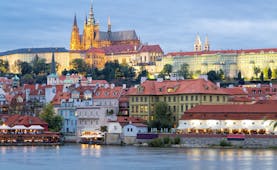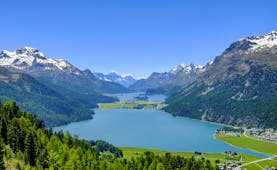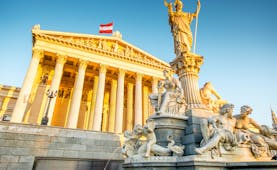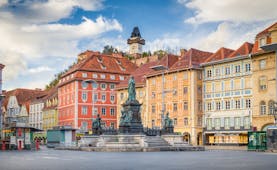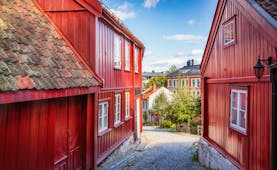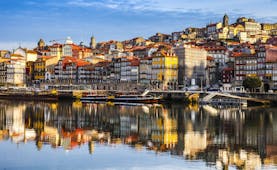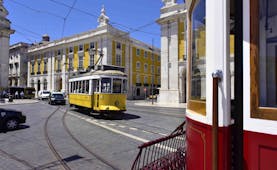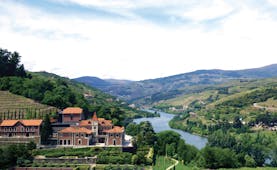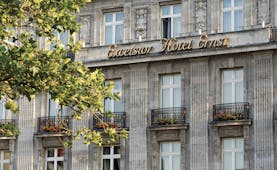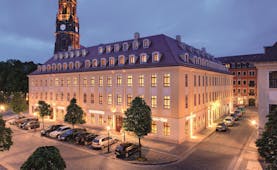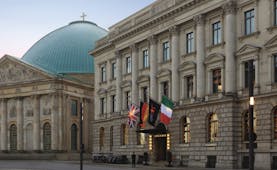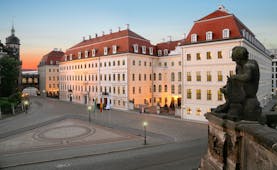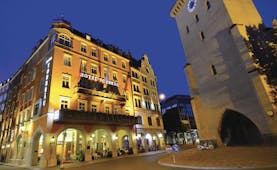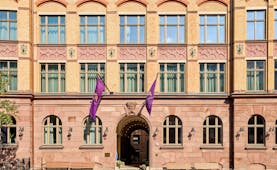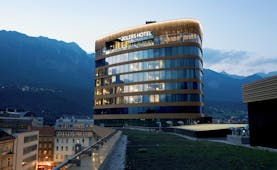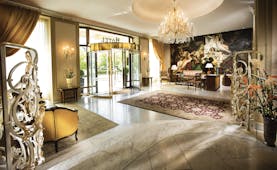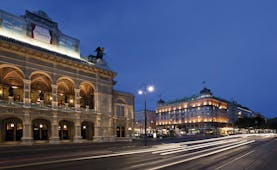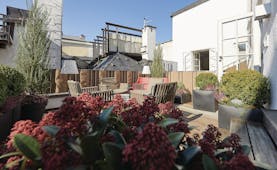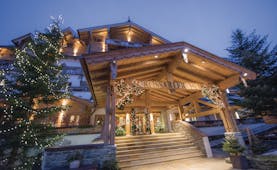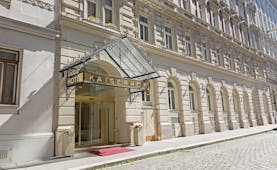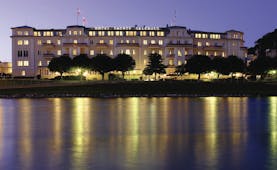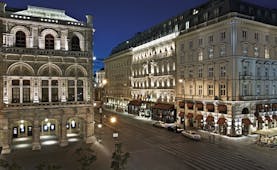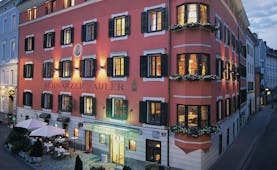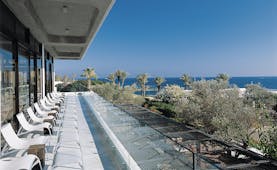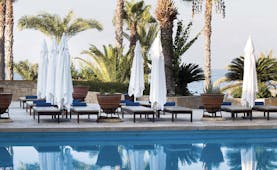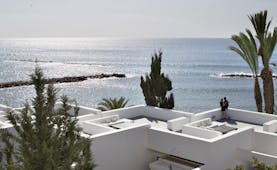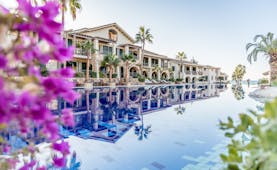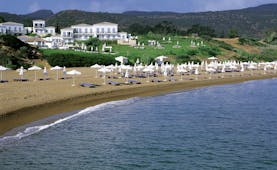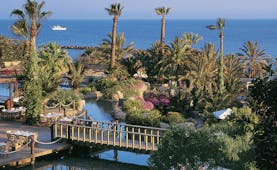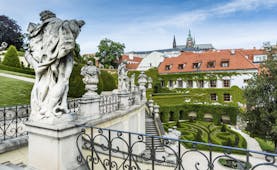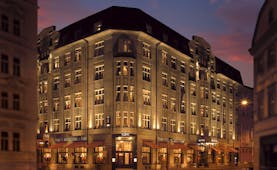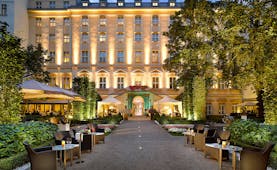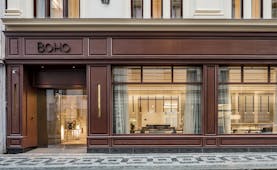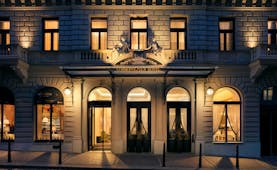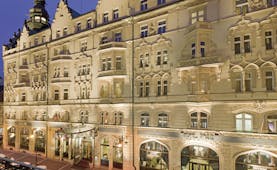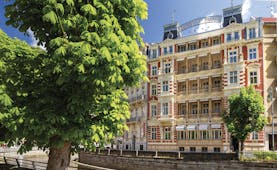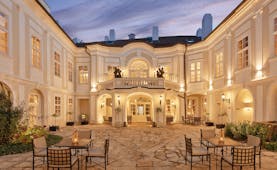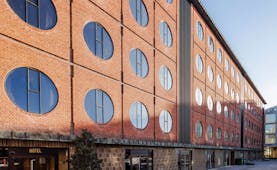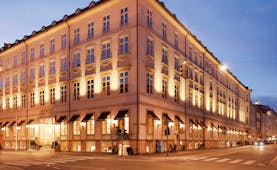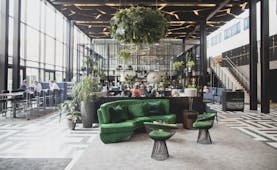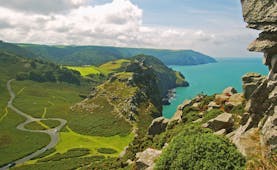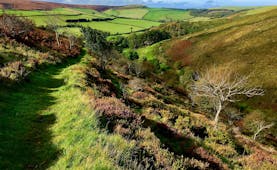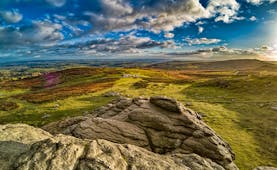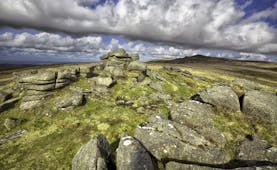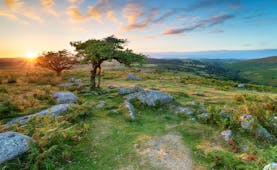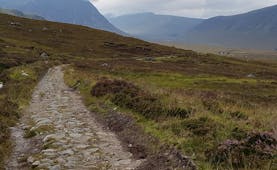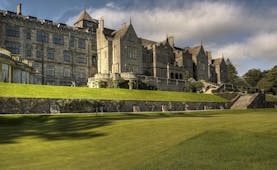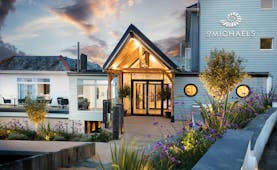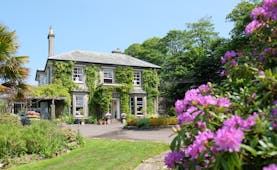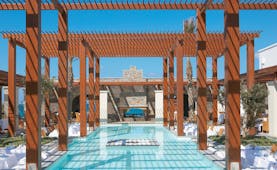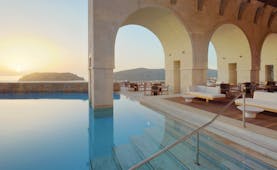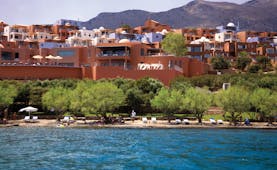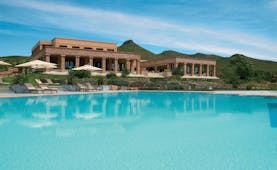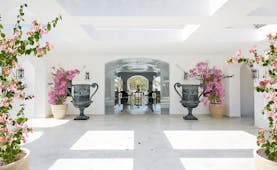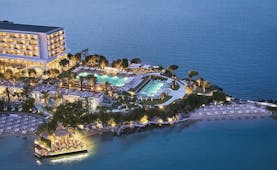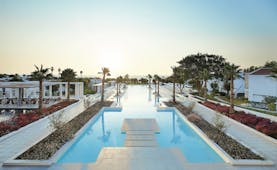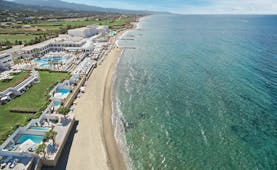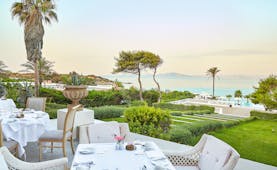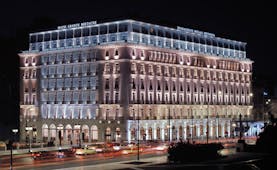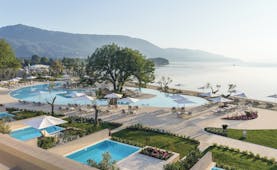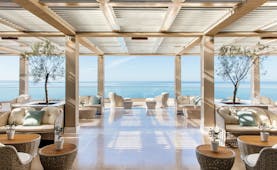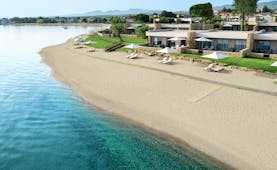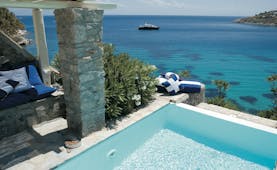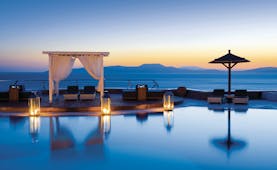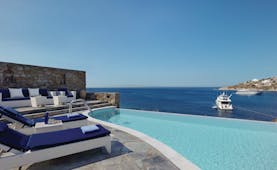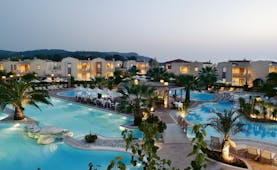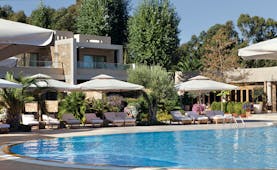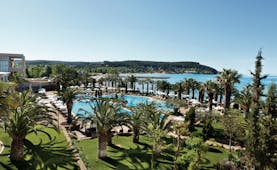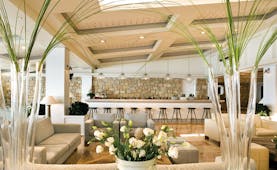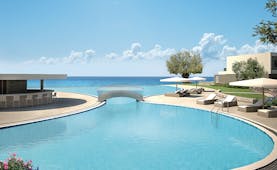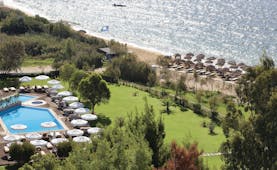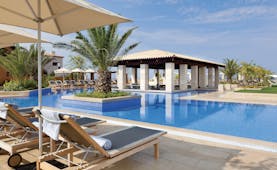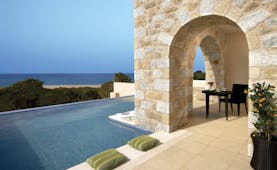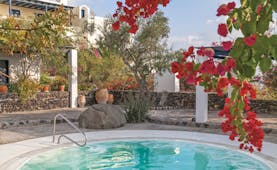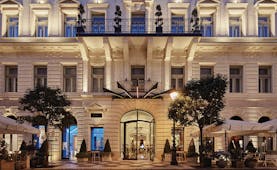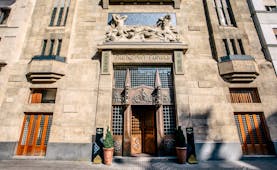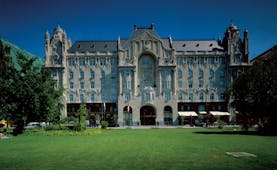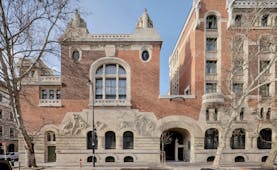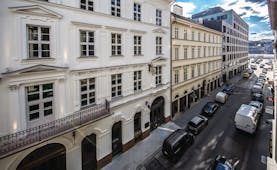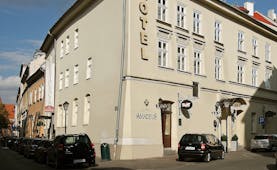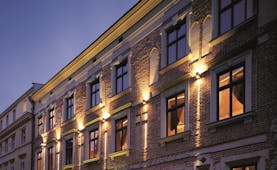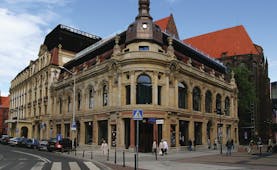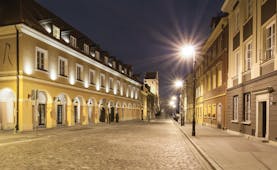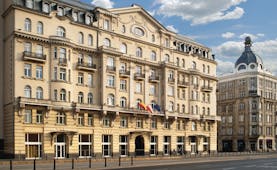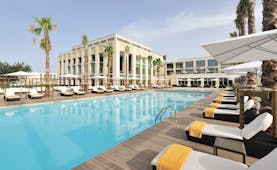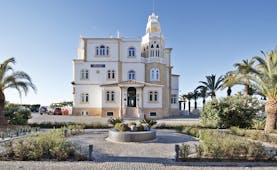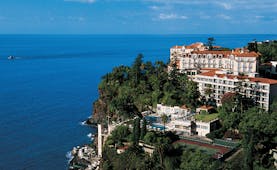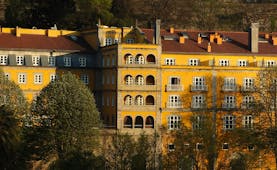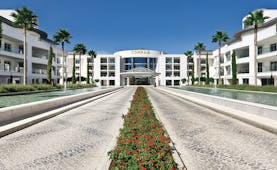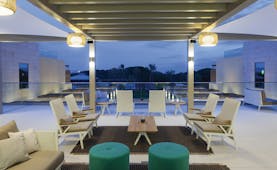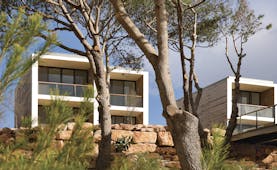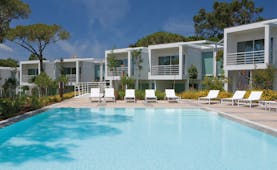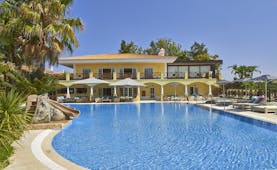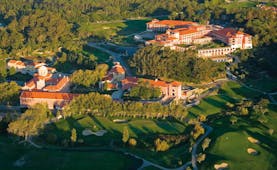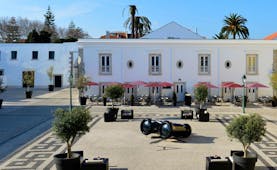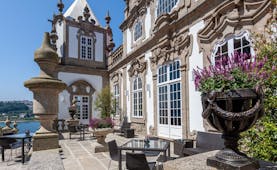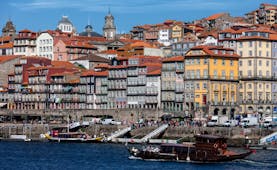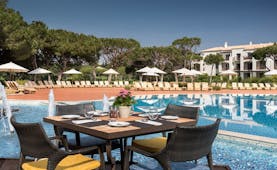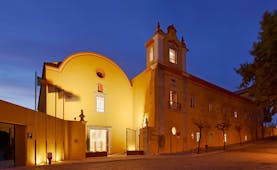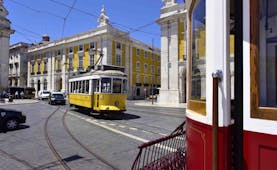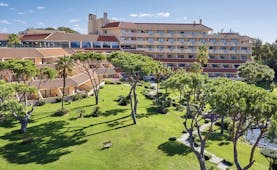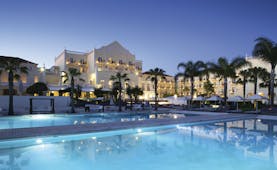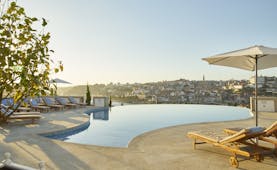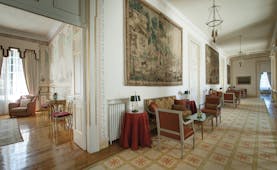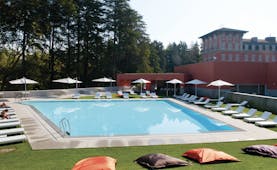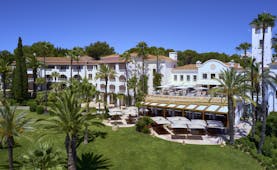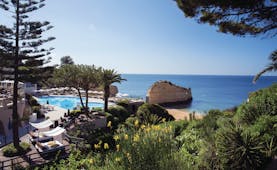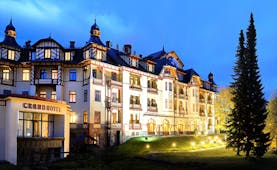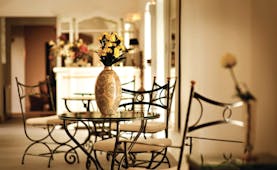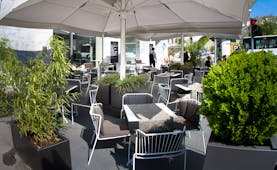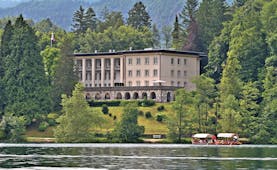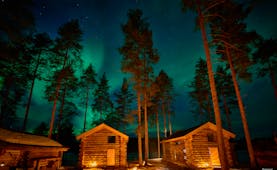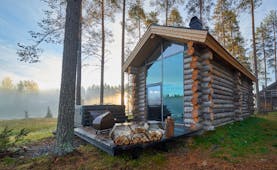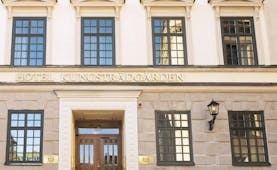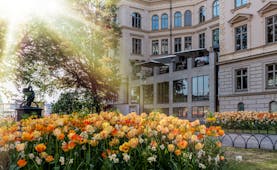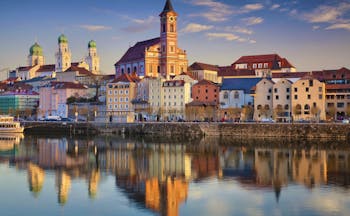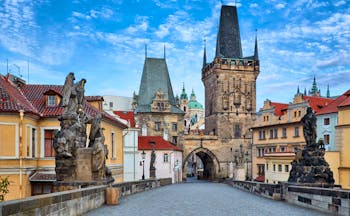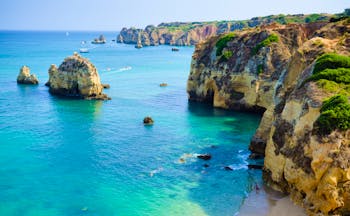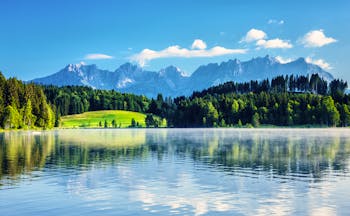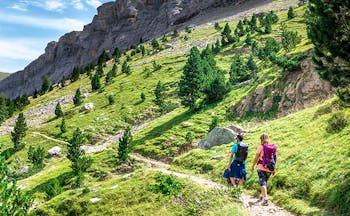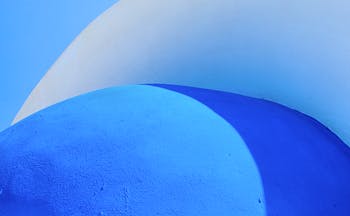Luxury rail holiday visiting the fairy-tale land of the Harz Mountains and a ride on the narrow-gauge Brocken railway
This rail holiday starts with your arrival into Cologne by train. The oldest city in Germany is rich in history dating from the Romans and Charlemagne. Spend your time here exploring its beautiful architecture, in particular the Gothic cathedral dating from the 13th century which houses the Shrine of the Three Kings. You depart the next morning for Goslar, your first base from which to explore the Harz Mountains. This city has been perfectly preserved since the days of the Holy Roman Empire, the influence of which can clearly be seen in the Imperial Palace built around 1040. The Old Town is one of the best-preserved city centres in the world, and the Rammelsburg Mine is listed as a UNESCO world heritage site. We recommend using your time here to embark on two of the main Harz narrow gauge railway lines: the Brocken Railway and the Trans-Harz Railway. The Brocken Railway will take you up via Drei Annen Hohne to Brocken, the highest point in the mountains, where you will be rewarded with magnificent views on a clear day. The Trans-Harz Railway takes you through to Nordhausen, right across the Harz Mountains through stunning scenery. After three nights in Goslar you move onto your next base of Quedlinburg, where you will stay for 2 nights. Half-timbered houses and picturesque market squares will transport you back to medieval times. Presiding over all of this is the beautiful Schloss Quedlinburg, which visitors are welcome to explore. Quedlinburg makes an excellent base from which to explore the last of the three main narrow-gauge lines in the Harz Mountains: the Selke Valley Railway. Steam trains run along the valley of the Selke river to the town of Eisfelder Tahlmühle, where you have time to stretch your legs before taking the return journey back to Quedlinburg. On your final day in the mountains take a mid-morning train via Magdeburg to Hannover, where you will spend your last night. Hannover is known for its rich cultural heritage, as well as for being the location of Oktoberfest in the Autumn. You will have the afternoon to explore the city’s beautiful gardens, in particular the Berggarten, which is now one of the world’s leading botanical gardens. You should also visit the New Town Hall, large parts of which are open for public tours. As part of this tour you will be taken to an observation platform which gives outstanding views of the city below. On your final day board the train at around half past ten back to Brussels, where the Eurostar will be waiting to take you back to London. You arrive back in the evening.
Highlights
Cologne • Goslar • Harz Narrow Gauge Railway • Brocken railway • Trans-Harz railway • Quedlinburg • Hannover
Day by day
Begin your Harz Mountains Railway tour by travelling from London to Brussels by Eurostar on an early morning departure. Upon reaching Brussels, continue to Cologne by high-speed ICE train. You arrive into Cologne just after 3pm, giving you time to explore the city after you check in to your hotel for one night. Cologne is an important cultural and economic city straddling the River Rhine. Dating from Roman times, the city was also a thriving centre in the Middle Ages, from Charlemagne onwards. The Roman-Germanic museum is located near the Cathedral and explains the history of the city from Palaeolithic times until the Middle Ages. It contains precious articles in gold, glass and other treasures. The landmark of Cologne is the Gothic cathedral dating from 1248 and housing the Shrine of the Three Kings. Nearby are remnants of the city’s medieval past with the Rathaus dating from the 12th century and reconstructed houses in the Old Town. Cologne is also home to numerous museums and galleries, as well as being an important musical centre with several orchestras. Cologne celebrates Carnival boisterously, produces its own beer, is famous for Eau de Cologne and is also renowned for its Christmas markets.
Today you travel to your first base within the Harz Mountains region. Departing from Cologne mid-morning, you will a have brief change of trains in Braunschweig before heading for Goslar. You will soon see tantalising glimpses of the hills to the south-east as you draw closer to the Harz Mountains. You arrive in Goslar just after two in the afternoon and check in to your hotel where you will spend the next three nights.
Goslar has over 1000 years of history and is known traditionally as a mining town. The main attraction in this fairy-tale town is the Imperial Palace, built between 1040 and 1050. It is possible to take tours of the palace to witness the incredible artwork and murals on the upper floors. The ground floor has been turned into a museum displaying artefacts of the palace and its imperial rule. The Rammelsburg Mine and Museum operated for more than 1000 years and is today listed as a UNESCO World Heritage Site. It is possible to take a guided tour of the mine on a mine train to see the wonderfully-preserved authenticity and learn about one of the world’s largest continuously-mined ore deposits. It is also well worth taking your time to stroll around the Old Town, another UNESCO World Heritage Site and one of the best-preserved city centres in the world. We recommend spending some of your time in Goslar to embark on two of the main lines of the Harz narrow-gauge railway: the Brocken Railway and the Trans-Harz railway. The Brocken Railway starts in Drei Annen Hohne, whose station has a restaurant which makes a good break for lunch. The final stretch climbs nearly 2,000 ft over a distance of almost 12 miles, travelling high above the heavily forested Cold Bode Valley. The final approach to the summit station is marked by a steeply-graded spiral around the mountain top. The Brocken is the highest elevation in northern Germany at 1,141 metres, and you will be met with stunning views at the top on a clear day. The Trans-Harz Railway runs from Wernigerode to Nordhausen. Wernigerode itself is well worth a visit for its incredible Rathaus (town hall) and Old Town. Leaving Wernigerode station, the 37-mile journey begins with tight curves as you head south before entering Thumkuhlenkopf Tunnel, the only tunnel on the entire Harz network. You will next pass the junction for the Brocken Railway at Drei Annen Hohne and travel between the ominously-named villages of Sorge and Elend (Worry and Misery) on your way back down from the next summit (1,827 ft). The railway continues to pass through forests as you head further south to Eisfelder Tahlmühle, finally descending out of the mountains slightly to finish in Nordhausen. Take a couple of hours to explore this city, which is the urban centre of northern Thuringia, before retracing your steps north through the mountains back to your base in Goslar.
Today you travel from Goslar to your next base in the mountains, Quedlinburg, via a quick stop in Halberstadt. This route takes only an hour and a half and runs regularly throughout the day, so can be booked for a time to suit your preferences. Check in to your hotel in Quedlinburg for the next two nights.
Quedlinburg is the picture-perfect fairytale town which one comes to expect from Germany. Half-timbered houses line pretty cobbled lanes, and the imposing Schloss Quedlinburg looms in the background. Now a museum, this magnificent structure gives information about the history and development of the region and the town. The Old Town itself is listed as a UNESCO World Heritage Site and will enchant you with its quaintness. The Fachwerkmuseum in Ständerbau houses a small museum detailing the history of half-timbered houses and the evolution of the town of Quedlinburg. It is housed in one of the oldest half-timbered houses in Germany and is supposedly the only museum of its kind in the world. Quedlinburg makes an excellent base from which to explore the third and final main line of the Harz narrow gauge railway system: the Selke Valley Railway. The least-used of the three lines, trains on this route stop at numerous small towns, including the medieval town of Gernrode and the spa town of Alexisbad. From here it continues southbound into the mountains at a steep gradient. The train terminates at Hasselfelde, north of which there is a sharply curved loop which allows the trains to turn around. Return to Quedlinburg and retire to your hotel for your last night in the Harz Mountains.
You depart from Quedlinburg on a mid-morning service which arrives into Hannover at around half past one. Hannover is known for its rich cultural heritage, as well as for being the location of Oktoberfest in the Autumn. You will have the afternoon to explore the city’s beautiful gardens, in particular the Berggarten, which is now one of the world’s leading botanical gardens. The New Town Hall resembles a palace and offers incredible views from its 93.5 metre-high observation deck. Opposite this is the Lower Saxony State museum, housed in a splendid Neo-Renaissance style building. This displays a collection of 11th to 20th century art, as well as natural history artefacts and a huge vivarium.
On your final day you leave Hannover at around 10:30 in the morning for Brussels, with one changeover in Cologne. Check in to your Eurostar service in Brussels and arrive back into London St Pancras in the evening.
My daughter and I had a fabulous time on our holiday. The hotels were all spectacular in their different ways, the train journeys were exciting and gorgeous scenery and the organisation from the various rail networks was spot on.Mrs B, June 2022
Holiday price guide From about £1,720 per person based on two people sharing a double or twin room and including second class rail travel. First class and standard premier on Eurostar supplement of £360 per person.
Holiday Code EEBR13
Call us on 01392 441245
Luxury rail holiday visiting the fairy-tale land of the Harz Mountains and a ride on the narrow-gauge Brocken railway
Begin your Harz Mountains Railway tour by travelling from London to Brussels by Eurostar on an early morning departure. Upon reaching Brussels, continue to Cologne by high-speed ICE train. You arrive into Cologne just after 3pm, giving you time to explore the city after you check in to your hotel for one night. Cologne is an important cultural and economic city straddling the River Rhine. Dating from Roman times, the city was also a thriving centre in the Middle Ages, from Charlemagne onwards. The Roman-Germanic museum is located near the Cathedral and explains the history of the city from Palaeolithic times until the Middle Ages. It contains precious articles in gold, glass and other treasures. The landmark of Cologne is the Gothic cathedral dating from 1248 and housing the Shrine of the Three Kings. Nearby are remnants of the city’s medieval past with the Rathaus dating from the 12th century and reconstructed houses in the Old Town. Cologne is also home to numerous museums and galleries, as well as being an important musical centre with several orchestras. Cologne celebrates Carnival boisterously, produces its own beer, is famous for Eau de Cologne and is also renowned for its Christmas markets.
Today you travel to your first base within the Harz Mountains region. Departing from Cologne mid-morning, you will a have brief change of trains in Braunschweig before heading for Goslar. You will soon see tantalising glimpses of the hills to the south-east as you draw closer to the Harz Mountains. You arrive in Goslar just after two in the afternoon and check in to your hotel where you will spend the next three nights.
Goslar has over 1000 years of history and is known traditionally as a mining town. The main attraction in this fairy-tale town is the Imperial Palace, built between 1040 and 1050. It is possible to take tours of the palace to witness the incredible artwork and murals on the upper floors. The ground floor has been turned into a museum displaying artefacts of the palace and its imperial rule. The Rammelsburg Mine and Museum operated for more than 1000 years and is today listed as a UNESCO World Heritage Site. It is possible to take a guided tour of the mine on a mine train to see the wonderfully-preserved authenticity and learn about one of the world’s largest continuously-mined ore deposits. It is also well worth taking your time to stroll around the Old Town, another UNESCO World Heritage Site and one of the best-preserved city centres in the world. We recommend spending some of your time in Goslar to embark on two of the main lines of the Harz narrow-gauge railway: the Brocken Railway and the Trans-Harz railway. The Brocken Railway starts in Drei Annen Hohne, whose station has a restaurant which makes a good break for lunch. The final stretch climbs nearly 2,000 ft over a distance of almost 12 miles, travelling high above the heavily forested Cold Bode Valley. The final approach to the summit station is marked by a steeply-graded spiral around the mountain top. The Brocken is the highest elevation in northern Germany at 1,141 metres, and you will be met with stunning views at the top on a clear day. The Trans-Harz Railway runs from Wernigerode to Nordhausen. Wernigerode itself is well worth a visit for its incredible Rathaus (town hall) and Old Town. Leaving Wernigerode station, the 37-mile journey begins with tight curves as you head south before entering Thumkuhlenkopf Tunnel, the only tunnel on the entire Harz network. You will next pass the junction for the Brocken Railway at Drei Annen Hohne and travel between the ominously-named villages of Sorge and Elend (Worry and Misery) on your way back down from the next summit (1,827 ft). The railway continues to pass through forests as you head further south to Eisfelder Tahlmühle, finally descending out of the mountains slightly to finish in Nordhausen. Take a couple of hours to explore this city, which is the urban centre of northern Thuringia, before retracing your steps north through the mountains back to your base in Goslar.
Today you travel from Goslar to your next base in the mountains, Quedlinburg, via a quick stop in Halberstadt. This route takes only an hour and a half and runs regularly throughout the day, so can be booked for a time to suit your preferences. Check in to your hotel in Quedlinburg for the next two nights.
Quedlinburg is the picture-perfect fairytale town which one comes to expect from Germany. Half-timbered houses line pretty cobbled lanes, and the imposing Schloss Quedlinburg looms in the background. Now a museum, this magnificent structure gives information about the history and development of the region and the town. The Old Town itself is listed as a UNESCO World Heritage Site and will enchant you with its quaintness. The Fachwerkmuseum in Ständerbau houses a small museum detailing the history of half-timbered houses and the evolution of the town of Quedlinburg. It is housed in one of the oldest half-timbered houses in Germany and is supposedly the only museum of its kind in the world. Quedlinburg makes an excellent base from which to explore the third and final main line of the Harz narrow gauge railway system: the Selke Valley Railway. The least-used of the three lines, trains on this route stop at numerous small towns, including the medieval town of Gernrode and the spa town of Alexisbad. From here it continues southbound into the mountains at a steep gradient. The train terminates at Hasselfelde, north of which there is a sharply curved loop which allows the trains to turn around. Return to Quedlinburg and retire to your hotel for your last night in the Harz Mountains.
You depart from Quedlinburg on a mid-morning service which arrives into Hannover at around half past one. Hannover is known for its rich cultural heritage, as well as for being the location of Oktoberfest in the Autumn. You will have the afternoon to explore the city’s beautiful gardens, in particular the Berggarten, which is now one of the world’s leading botanical gardens. The New Town Hall resembles a palace and offers incredible views from its 93.5 metre-high observation deck. Opposite this is the Lower Saxony State museum, housed in a splendid Neo-Renaissance style building. This displays a collection of 11th to 20th century art, as well as natural history artefacts and a huge vivarium.
On your final day you leave Hannover at around 10:30 in the morning for Brussels, with one changeover in Cologne. Check in to your Eurostar service in Brussels and arrive back into London St Pancras in the evening.
My daughter and I had a fabulous time on our holiday. The hotels were all spectacular in their different ways, the train journeys were exciting and gorgeous scenery and the organisation from the various rail networks was spot on.Mrs B, June 2022
Holiday price guide From about £1,720 per person based on two people sharing a double or twin room and including second class rail travel. First class and standard premier on Eurostar supplement of £360 per person.
Holiday Code EEBR13
Our prices include
● Rail travel from London throughout, back to London
● Second-class travel on all trains (first class and standard premier on Eurostar can be booked at a supplement)
● 1 night’s bed and breakfast in a Classic double room at Excelsior Hotel Ernst, Cologne
● 3 nights’ bed and breakfast in a Classic double room at Hotel Alte Münze, Goslar
● 2 nights’ bed and breakfast in a Classic double room at Romantik hotel am Brühl, Quedlinburg
● 1 night’s bed and breakfast in a Standard double room at Central Hotel Kaiserhof, Hannover
● Concierge service and Expressions Holidays regional helpful hints
Our prices do not include
What’s not included
● Early check-in or late check-out at any hotels (although we can arrange this on request at additional cost)
● Any other services not mentioned above, such as transfers and meals except breakfast at hotels
● Personal holiday insurance. This is essential and cover should be in place from when you book the holiday.
● Local tourist tax, usually between Euros 1 and 3 per person per night, and payable locally to the hotel
● Transfers in any cities
Additional information This holiday can be arranged throughout the year. Timings can vary depending on the month and day of the week.
Call us on 01392 441245
Luxury rail holiday visiting the fairy-tale land of the Harz Mountains and a ride on the narrow-gauge Brocken railway
My daughter and I had a fabulous time on our holiday. The hotels were all spectacular in their different ways, the train journeys were exciting and gorgeous scenery and the organisation from the various rail networks was spot on.Mrs B, June 2022
Holiday price guide From about £1,720 per person based on two people sharing a double or twin room and including second class rail travel. First class and standard premier on Eurostar supplement of £360 per person.
Holiday Code EEBR13
Call us on 01392 441245
Luxury rail holiday visiting the fairy-tale land of the Harz Mountains and a ride on the narrow-gauge Brocken railway
About Germany
An Expressions tailor-made holiday to Germany enables travellers to experience a fascinating and richly varied country. Germany is replete with regional quirks and personalities - a strong feature of German life and a hangover from the days, not too long ago, when the country was once a patchwork of independent states. Today, to travel from the ancient ports of the north, across the open fields of the German plain, and down through the Ruhr and onto the forests, mountains and cosmopolitan cities of Germany’s Bavarian south, you’ll experience an intriguing variety as great – and appealing – as you’d find anywhere else in Europe. Several of Germany’s cities have the air of national capitals. Cologne, though enmeshed in one of Europe’s most intensively industrialised regions, is rich in monuments. Bavaria’s capital, Munich, is another star attraction, with great museums and galleries. Berlin, the nucleus of the turmoil of reunification, is now one of the most sophisticated, artistic and exciting cities on the planet, while Nuremberg is thrillingly ancient, with the most charming of winter markets in the 11th century square, and summer festivals when the cobbled streets come alive with street artists and musicians. Scattered between these city big-hitters, quieter, utterly charming cities and large towns abound, with medieval old towns straight out of fairy-tale picture books. Heidelberg, the oldest university town in Germany, is an absolute gem, nestling between wooded hills on the banks of the Neckar river, a setting that has seduced visitors ever since the days of the Grand Tour. But from Trier to Bamberg, Marburg to Meissen, Regensburg to Rothenburg, enchanting old towns abound. Beyond Germany’s beautiful cities and towns, the Bavarian Alps, right on Munich’s doorstep, are a spectacular playground for hikers and bikers, horse-riders and skiers. The Rhine and Mosel are both littered with castles and vineyards, offering an enchanting backdrop for the cruise boats that drift serenely along their waters. And stretching more than 100 miles north to south, and 45 miles from east to west, the Black Forest is awash with pretty spa towns and exquisite health resorts, crisscrossed with walking trails. The Black Forest also boasts some of the most spectacular rail journals on the planet. A beautiful, intriguing country vastly at odds with its stiff stereotype, Germany is a wonderful holiday destination for active outdoorsy types and city-breakers alike.
Highlights of Germany
Berlin’s world-class museums, bustling bars, galleries and monuments; Rugen Island, with its rugged chalk cliffs, windswept beaches, Romantic-era spa architecture and tree-lined country roads; Dresden, with its baroque beauty on the banks of the majestic Elbe; Cologne’s magnificent cathedral; the UNESCO World Heritage city of Bamberg; the sandy dunes of Sylt, a North Sea island with fabulous beaches and surf; the beer halls of Munich, ideally in September during the Oktoberfest; Lubeck, a Hanseatic gem; Muritz National Park, where you can go paddling and camping in a paradise teeming with birds; Bremen, a metropolis in miniature, with lovely red-brick and Art Nouveau architecture; the Alpine resorts of Bavaria, including Berchtesgaden, with dramatic peaks, dreamy lakes and superb walking trails; drive or cruise along the Rhine or Mosel, visiting castles, medieval villages and superb vineyards along the way; the walled medieval towns of Rothenburg and Trier, both with wonderful Christmas markets; the Christmas market at Nuremberg, oldest – and still most picturesque – in the world.
Facts in brief
Capital BerlinAirport Several airports are served from the UK, including Berlin, Bremen, Cologne-Bonn, Dortmund, Dresden, Dusseldorf, Frankfurt, Hamburg, Hannover, Stuttgart and Munich.
Size 137,000 sq. miles
Population 82 million

